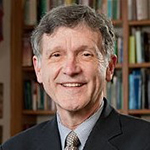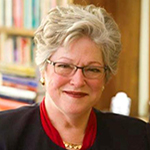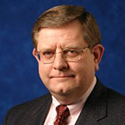By Jeff Brumley
Some congregational coaches hope to see a return to Christ-centered values in the American church, while some Baptist scholars are eager for Christians in the United States to hear and feel the pain suffered by persecuted counterparts around the globe.
And as a group, church consultants, theologians and pastors worry that congregations will miss their moment to transform themselves to be relevant to the world around them.
Baptist News Global asked this group of Baptists who have a finger on the pulse of the church to share their greatest hopes and worst concerns for the church in 2015.
 Bill Leonard, professor of Baptist studies and church history at Wake Forest University’s School of Divinity:
Bill Leonard, professor of Baptist studies and church history at Wake Forest University’s School of Divinity:
Biggest hope for the church: That we will revisit the “Jesus story” in ways that renew the church and regain credibility and ministry with those who have written us off.
Concern? That we will obsess over the loss of “culture privilege” in ways that keep us from appropriately revisiting the “Jesus story.”
 Molly Marshall, president and professor of theology and spiritual formation at Central Baptist Theological Seminary in Shawnee, Kan.:
Molly Marshall, president and professor of theology and spiritual formation at Central Baptist Theological Seminary in Shawnee, Kan.:
My biggest hope is that the church will be theologically formed as the Body of Christ to then embody redemption for the world.
My biggest concern is that the church will feel powerless to change the social landscape — but as the Body of Christ, it is suffused with the power of the Holy Spirit.
 Curtis Freeman, research professor of theology and Baptist studies and director of the Baptist House of Studies at Duke Divinity School:
Curtis Freeman, research professor of theology and Baptist studies and director of the Baptist House of Studies at Duke Divinity School:
Biggest hope for the church in 2015: That Christians in the United States will begin listening to the cries of their brothers and sisters living in dangerous and violent conditions, especially in the Middle East and West Africa.
Greatest concern for the church in 2015: That Christians in the U.S. will continue to ignore the racial division that gives lie to the gospel and threatens to shipwreck the mission of the church.
George Mason, senior pastor at Wilshire Baptist Church in Dallas:
Our church has just adopted a vision statement for the years leading up to 2020 that fits my hope for the church at large: “To become a bold witness to the way of Christ in our time.” Being a witness means seeing the world first — seeing it as it really is, and recognizing the distance between what it is and God’s dream for it. My hope is that the church will live creatively and compassionately in that space between what is and what God is bringing to pass. Our witness is both to Christ himself as the hope of the world and also to his way of life that we must embody as his church. And finally, we must do all this for our day and in our time. Christ will be made known actually in his real presence among us, by our witness to what he is doing now in his healing and reconciling work that makes all things new.
My biggest fear is that the church will accommodate itself to the world as it is and seek to be successful on those terms. Failure amounts to this: gaining the world and losing the soul of the church.
 Travis Collins, director of mission advancement and Virginia regional coordinator for Fresh Expressions U.S.:
Travis Collins, director of mission advancement and Virginia regional coordinator for Fresh Expressions U.S.:
My biggest hope for 2015 is that there seems to be an increasing emphasis on pastors cultivating a missional environment in their congregations — encouraging holy conversations among their people in search of what the Spirit is saying to them about their neighborhoods, listening for the voice of God among the flock. Not abdicating their leadership, but remembering that Jeremiah 29:11 — “I know the plans I have for you ….” — is not about the pastor.
My biggest concern is that, for many congregations, the conversations I mention above might have come too late. A lethargic hopelessness curses many congregations and, barring some bona fide miracles, many congregations are headed toward inauspicious closings this next year.
 Bill Wilson, founder of the North Carolina-based Center for Healthy Churches:
Bill Wilson, founder of the North Carolina-based Center for Healthy Churches:
Biggest hope: that churches will “rebalance their portfolio of ministry” to devote as much attention to the community around them as they devote to themselves. This would impact finances, staffing, facilities and structures.
Biggest fear: that the widespread scapegoating of clergy for the struggles of the local congregation will accelerate.
 Eddie Hammett, president of North Carolina-based Transforming Solutions:
Eddie Hammett, president of North Carolina-based Transforming Solutions:
My biggest hope for most churches is that they would value the leadership of the Holy Spirit more than their history, traditions or comfort zones. I’m confident God’s church will prevail and thrive. I’m not as confident that most congregations are God’s church. Many are more of a club than a biblical community of faith.
My biggest concern for most churches is that they would fail to value being open to the Spirit’s leading as they deepen and broaden their understanding and practice of church in our 21st-century world. Seems to me that the biblical model of church focuses in three venues — In the church, through the church programming, as the church as we learn and commit to being church as salt, light and leaven in the world and not just in our facilities and programming. All expressions of the church are desperately needed in the world today, but most churches focus primarily on in and others on through but very few focus on the incarnational dimension of church and that is the dominate cry of the world.
 George Bullard, president of the South Carolina-based Columbia Partnership:
George Bullard, president of the South Carolina-based Columbia Partnership:
Biggest hope: that the church will renew its willingness to die to self and live in missional service to others with the character and nature of Jesus. Congregations continue to be way too inwardly focused on the religious culture they have created within their own fellowship rather than outwardly focused on making their communities and the world more loving and just. Their outward focus must be a holistic approach to the spiritual, social, physical, and emotional worth and value of people whose names they come to know and whose lives deserve the spiritual transformation found in relationship with the Triune God.
Biggest concern: that the church will continue to disconnect extending its missional service from renewing its core Christ-centered faith-based congregational community.
Those congregations who die to self and live to missional service too often forget that it is alright to reach a new generation of people with the unconditional love of God through Jesus Christ while taking risks to serve their social, physical, and emotional needs. They fail to renew their congregational core while extending with great passion their missional service.
